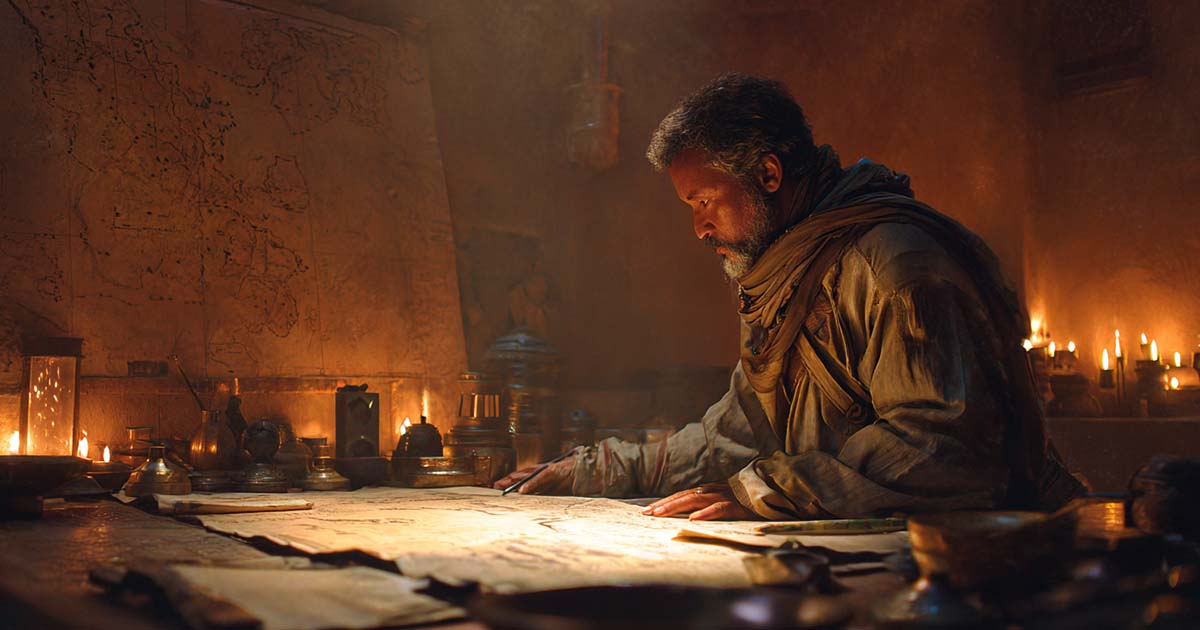Thufir Hawat, Master of Assassins
Explore the life and role of Thufir Hawat in Frank Herbert’s "Dune." From loyal Mentat of House Atreides to a tragic figure shaped by suspicion, discover his impact on the saga and his presence in major adaptations.

In Frank Herbert’s "Dune," many characters shape the destiny of empires. Thufir Hawat is one of the most quietly influential. He is not a duke, prophet, or warrior, but the Mentat and Master of Assassins who keeps House Atreides alive in a dangerous political arena.
Trained to think as a human computer, Hawat balances loyalty, suspicion, and tactical genius. His presence provides a hard edge to the idealism of Duke Leto and the youthful energy of Paul Atreides. Though less flamboyant than villains or mystics, Hawat’s role is central to understanding the politics of "Dune" and the fragility of human judgment.
Origins and Context
The character of Thufir Hawat grows out of Herbert’s deep worldbuilding. After the Butlerian Jihad, thinking machines were outlawed. Humanity answered the loss of computers with Mentats, men trained to process information with speed and accuracy.
Hawat is one of the best of his kind. He applies his talents to espionage, assassination, and political maneuvering. Herbert introduces him in "Dune" in 1965 as the trusted spymaster of House Atreides. His title, Master of Assassins, reflects the ruthless pragmatism needed in an empire ruled by intrigue.
Mentat of House Atreides
Hawat’s service under Duke Leto is one of the foundations of the Atreides' strength. He manages defenses, coordinates intelligence, and prepares Paul for leadership.

Unlike Duncan Idaho, who inspires through courage, or Gurney Halleck, who trains Paul with music and sword, Hawat sharpens the boy’s mind. He teaches suspicion, calculation, and political caution. His loyalty is complete, but his worldview is hardened by decades of conflict with the Harkonnens.
This obsession is both his greatest strength and his weakness. He anticipates Harkonnen cruelty in every move. That focus leaves him open to deception and blinds him to other threats.
Trust and Suspicion
One of Hawat’s most tragic qualities is his distrust of Lady Jessica. When the Atreides move to Arrakis, the Harkonnens plant evidence that points to her as a traitor.
Hawat, already wary of her Bene Gesserit ties, accepts the possibility. Even the most disciplined Mentat is only as strong as the information he receives. His suspicion drives a wedge into the Atreides household at the worst possible moment.
This failure shows one of Herbert’s central themes. Even the sharpest logic falters without truth. Deception works not only on the battlefield but in the heart of a family.
Captivity and Consequences
When House Atreides falls to the Harkonnen assault, Hawat survives but is captured. The Baron uses poison and the promise of an antidote to keep him alive and obedient.

Hawat is forced to serve his enemy as an adviser. His loyalty to Paul and the memory of Duke Leto never wavers. Yet his brilliance is bent to the service of a house he despises.
For readers, this is one of the darkest chapters in the novel. It shows the cruel efficiency of the Harkonnens. It also demonstrates the heavy cost of Hawat’s earlier misjudgments.
Spoiler note. Hawat’s final fate in the novel ties his arc to the larger conflict between Atreides and Harkonnen. His story shows how even the keenest minds are not immune to tragedy.
Presence in Adaptations
Film and television versions of "Dune" have struggled with Thufir Hawat’s complexity. In David Lynch’s 1984 film, Freddie Jones plays him with eccentric energy that leans toward madness. The result is memorable but less accurate to the steady Mentat of the book.
The Sci-Fi Channel miniseries in 2000 takes a quieter approach. Jan Vlasák plays Hawat with gravity, though the limited scope of the production compresses his arc.
In Denis Villeneuve’s films, Stephen McKinley Henderson portrays Hawat with warmth and quiet dignity. His loyalty to Duke Leto and Paul comes through, though much of his later story is trimmed. These choices reflect the difficulty of adapting Hawat’s layered role within the time limits of modern cinema.
Enduring Significance
Thufir Hawat embodies the limits of human intellect in a universe that mistrusts machines. His story reminds us that loyalty, logic, and cunning cannot always prevent disaster.
He is both a mentor and a tragic figure. He sharpens Paul’s mind while showing readers the cost of misplaced suspicion. His influence shapes the destiny of House Atreides even when his own fortunes collapse.
Fans often find Hawat more relatable than the grander figures of "Dune." He is loyal but flawed, brilliant yet fallible, and deeply human. He serves with everything he has and pays a price for his mistakes.

